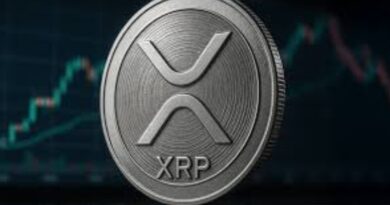Fold Celebrates First Bitcoin Financial Services Listing on Nasdaq
Bitcoin and Wall Street: Fold Celebrates a Major Milestone
Something big just happened in the world of Bitcoin and traditional finance. Fold, a Bitcoin rewards company, recently had its major day on Wall Street. The team rang the opening bell at Nasdaq, marking the first-ever listing of a company focused solely on Bitcoin financial services.
This isn’t just another business story—it’s a sign that Bitcoin is getting closer to the mainstream.
What Is Fold?
If you’re new to Fold, here’s a quick look.
Fold is a Bitcoin rewards and financial services platform. Instead of earning cashback on your purchases, you earn Bitcoin. Simple, right? Use your Fold card, spend like you normally would, and gain satoshis—the smallest units of Bitcoin—in return.
But Fold is more than just a rewards app. The company is working to make Bitcoin part of everyday finance by offering:
- Bitcoin rewards on daily spending
- A user-friendly mobile app experience
- Financial services backed by Bitcoin
Now, with its new listing on Nasdaq, Fold is stepping into a much larger spotlight.
Why Does the Nasdaq Listing Matter?
Being listed on Nasdaq is a big deal for any company. It’s a stamp of legitimacy. For Fold, it means that a traditional financial market is now recognizing the value of Bitcoin-based services.
Why is that important?
Because it shows a bridge is forming between traditional banking and the Bitcoin economy—two worlds that haven’t always seen eye to eye.
With this move:
- Investors can now access Bitcoin services through public markets
- Consumers may begin taking Bitcoin rewards more seriously
- The credibility of crypto in professional finance grows
This listing didn’t come out of nowhere. Fold’s partnership with Bitcoin startup TBD, a division of Block, played a key role.
What Role Did TBD and Jack Dorsey Play?
TBD is part of Block, the financial services company led by Jack Dorsey, also known for co-founding Twitter. Dorsey has been one of the most outspoken supporters of Bitcoin over the last decade.
TBD aims to build infrastructure that supports open access to financial systems using Bitcoin and decentralized technologies.
So, when TBD backs Fold, that sends a pretty clear message: Bitcoin’s future is being built now—not just by techies, but by major finance players too.
Fold’s CEO, Will Reeves, mentioned that this step was more than a celebration. According to him, it’s the start of a full Bitcoin banking platform.
Bitcoin Banking: What Could That Look Like?
Let’s step back for a second—what is Bitcoin banking?
It sounds like a mash-up of two very different things. But think of it this way: What if your everyday banking—spending, saving, borrowing—worked with Bitcoin instead of dollars?
Fold wants to make that possible. Imagine:
- Paychecks offered in Bitcoin
- Loans backed by Bitcoin holdings
- Bitcoin investment options offered inside banking apps
That’s not some futuristic dream. Fold and companies like it are already working toward these changes.
What This Means for Everyday Users
You might be wondering: “Why should I care?”
Great question.
If you’re already using Bitcoin, this could mean more tools and services for managing your crypto. Things like:
- Better security for your digital assets
- More user-friendly wallets and apps
- Lower fees and faster transactions
But even if you’ve never touched crypto before, mainstream adoption could lead to options in your everyday financial life—like paying your bills with Bitcoin or receiving rewards in it without needing to understand blockchain technology.
The Bigger Picture: Bitcoin Isn’t Just for Crypto Fans Now
Years ago, Bitcoin was mostly seen as a tool for tech-savvy traders or those looking to bet on big price swings. Today, it’s becoming part of real financial products and services.
Fold’s Nasdaq debut acts as evidence. This moment shows:
- Bitcoin can fit into regulated finance
- Public markets are increasingly open to crypto innovation
- New financial models are being created—ones built on transparency and decentralization
This movement won’t change the world overnight. But it’s clearly gaining traction.
A Personal Example
A few months ago, I used my Fold card to pay for groceries. Instead of earning points for a coffee I wouldn’t even redeem, I received satoshis—Bitcoin units I could save, spend, or store.
That felt different. And now that Fold is publicly listed, it’s becoming clearer: this experience may soon become the norm, not the exception.
What Comes Next?
Ringing the bell at Nasdaq is symbolic, but it also kicks off a new chapter for Fold.
This isn’t just about stock prices or market moves. It’s about changing how financial services work from the ground up.
Looking ahead, it’s likely we’ll see:
- More fintech companies offering Bitcoin rewards
- Banking platforms incorporating crypto as a core feature
- Everyday users gaining more power over their financial choices
And Fold isn’t alone. As more companies get involved, competition could drive user-friendly updates—better features, quicker support, more secure systems.
A New Era for Bitcoin Finance?
We’re still in the early days.
But moments like Fold’s Nasdaq debut are shaping the future of how we interact with money. Bitcoin financial services may soon be just as normal as using a debit card—or even more efficient than traditional tools.
The next time you make a purchase, think about this: Would you rather collect rewards in points… or sit on assets that may grow in value?
Maybe it’s time your finances worked as hard as you do. And maybe, just maybe, Bitcoin’s the tool to help make that happen.









